Neighbor Serving Neighbor
It’s unusually cool on a Saturday in July as neighbors load groceries into neighbors’ cars. While the Mobile Food Pantry normally delivers food to our partner schools each month during the school year, over the summer, the food pantry opens every other Saturday so that parents can pick up groceries outside of work hours.
Matt Jankowski steps into the Fenn Hall pantry space and announces, “Family of four coming up!” Volunteers leap into action, grabbing fruits, meats, vegetables and bread and placing them in the cart next to grocery bags full of pantry staples, ready to be wheeled out and loaded into the next neighbor’s car. As Matt waits for the cart to be ready, he reflects on the meaning behind their actions: “As Christians one of the calls is to love your neighbor as yourself and I think that by acting in love and helping take care of people in our community, that is helping fulfill our role as Christians.”
The Mobile Food Pantry (MFP), an expansion of McFarlin’s Food Pantry, is the perfect vehicle for reaching out to our neighbors in love because that’s where the idea came from. Richard Dennis is a retired school principal and the current MFP coordinator. He was part of the Vision 2020 team that greenlit the expansion to take food into the neighborhoods.
“The whole purpose of our vision was to reach out into the community and in our discussions that’s where the idea of the Mobile Food Pantry came from; to go out where the people are. Our pantry is only open during the workday and so many parents can’t get here during those hours.”
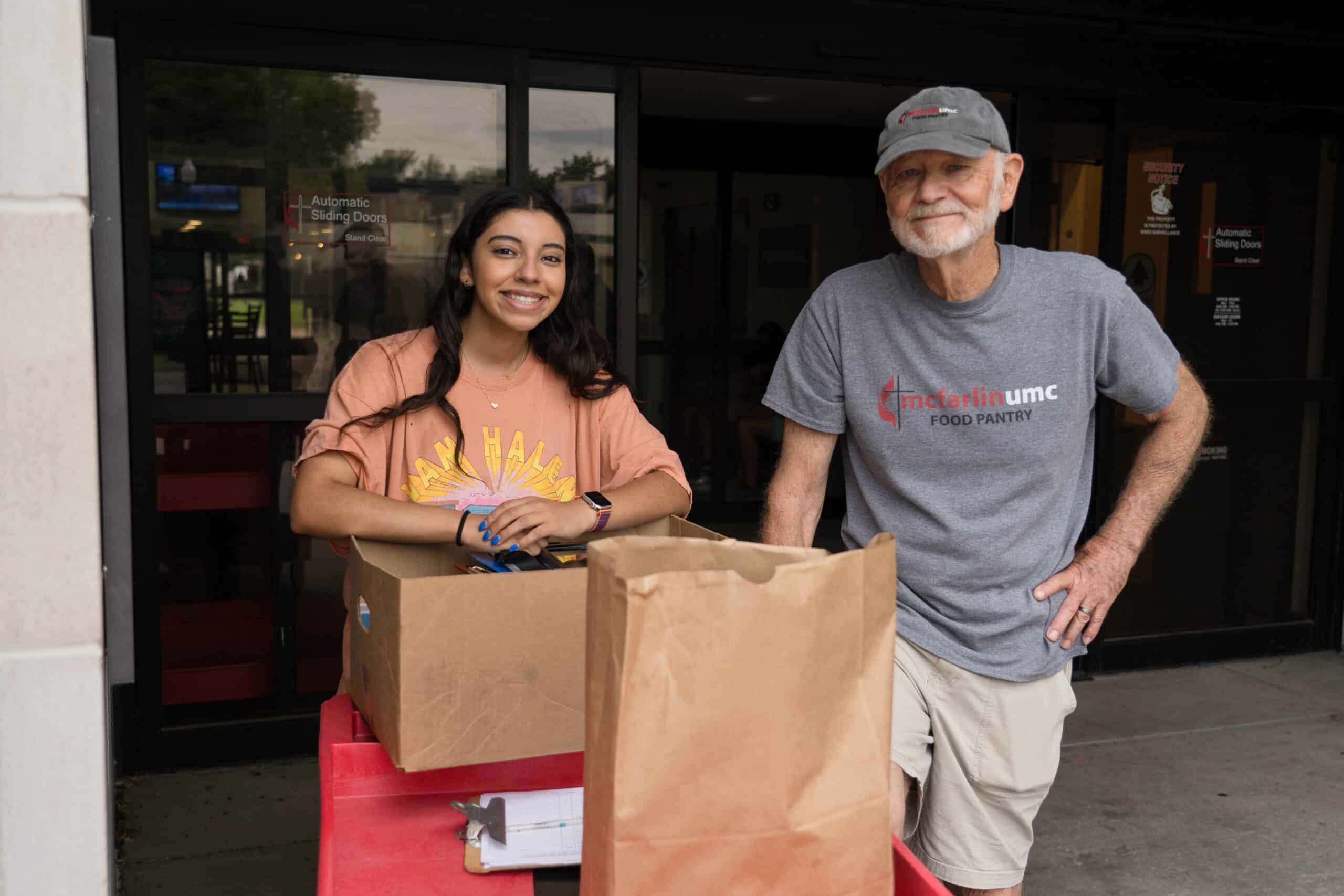
With a grant from the Oklahoma Annual Conference, McFarlin purchased a box truck, outfitted it for transporting food and set up a schedule to visit our partner schools Adams, Jackson, Madison and Irving once a month. Richard has seen the impact this simple act of caring has on families:
“Many families only have limited resources to meet all their needs so if we can supply them with food to offset some of that cost, it makes a big difference for them and helps them stretch their family budget.”
During our 2023 Lenten sermon series, “The Art of Neighboring”, Pastor Rockford offered insight into how caring for our neighbors reflects how we feel about God. “When we respect and care for our neighbors, revere them as worthy because God sees them as worthy of love and respect, we are confessing our reverence for God; we are showing ourselves to be faithful to the way of Jesus, faithful to heed the teachings of Jesus, faithful to use our time wisely as taught by Jesus.”
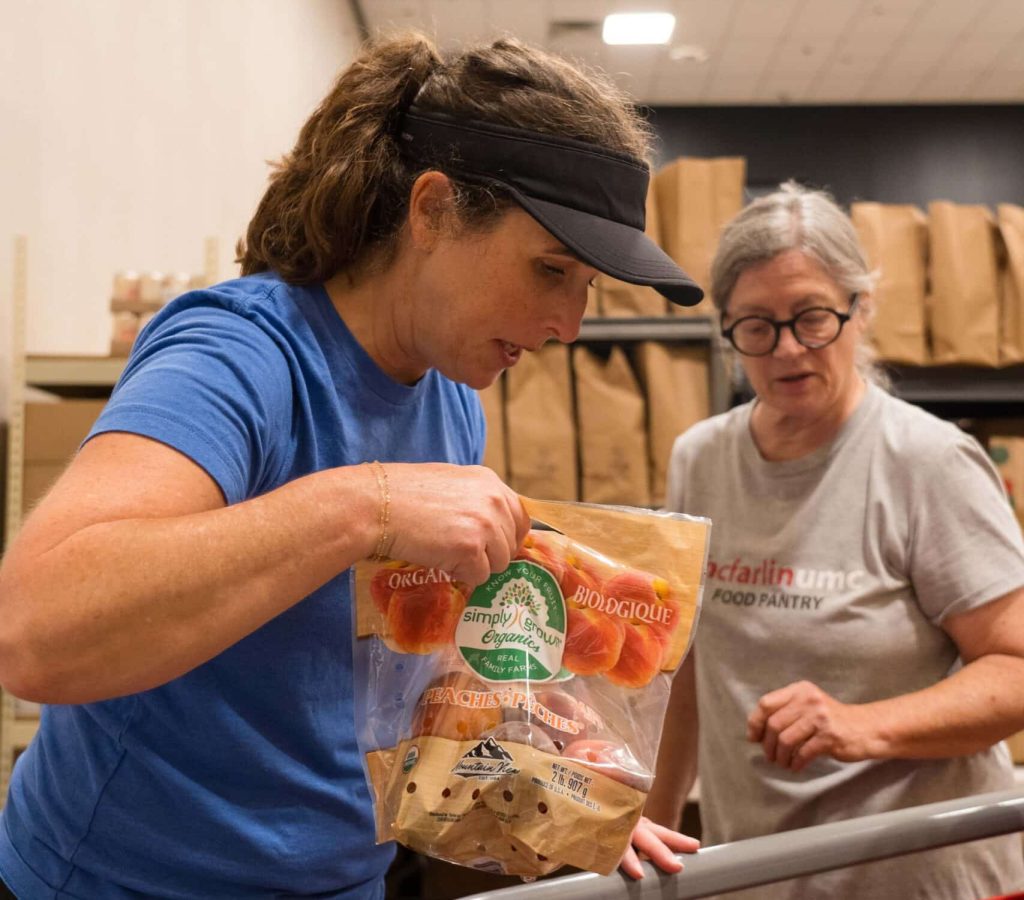
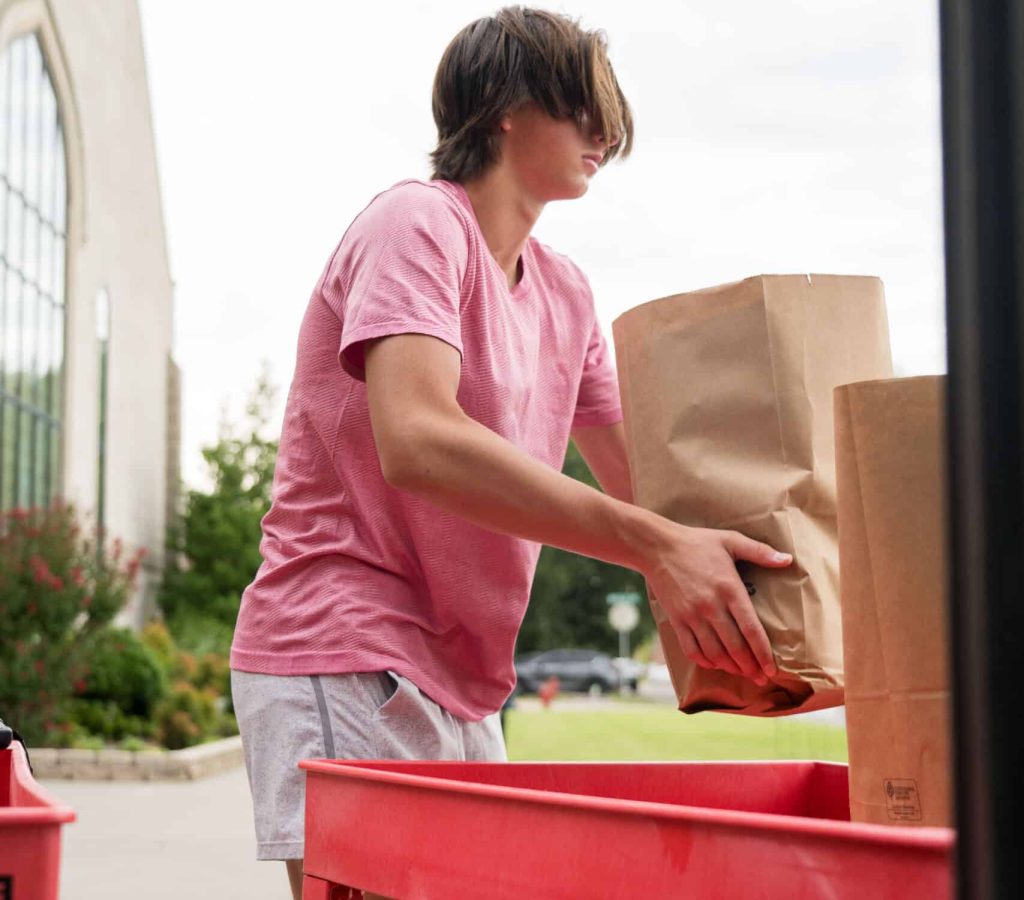
We have a lot of neighbors in need of love, care and respect. In the first six months of operation in 2023, McFarlin’s food pantry served an average of 845 families each month – approximately 2850 people. 25% of those families are recurring clients. On average we see 450 senior adults, 400 families with children and 56 single-parent households each month.
By acting in love and helping take care of people in our community, that is helping fulfill our role as Christians.”
Matt Jankowski
John Hawkins, first-time volunteer for the Mobile Food Pantry, sees the food we share as more than just physical nourishment, he also sees it as hope. “God shows us love and that’s how we return it back. It’s God working through us giving back to the community, showing that they may be going through a hard time, but we can be that light, even if it’s just a speck of light – we’re that light, that hope and love that they can see.”
Estefany Meavy, longtime McFarlin member and incoming freshman at OU, joined the Mobile Food Pantry crew after helping once and seeing people she knew from her former elementary school, including teachers. The fulfillment she gets from helping her neighbors is more than just handing out groceries, it’s about building community:
“I think sometimes people forget that we’re not just giving food and giving back, we’re also making connections with those families. We get to know one another. Recently we had a woman who got a new job and she’s moving to Florida which is really good for her. She’s been really grateful for us, and she’s even volunteered once in a while.”
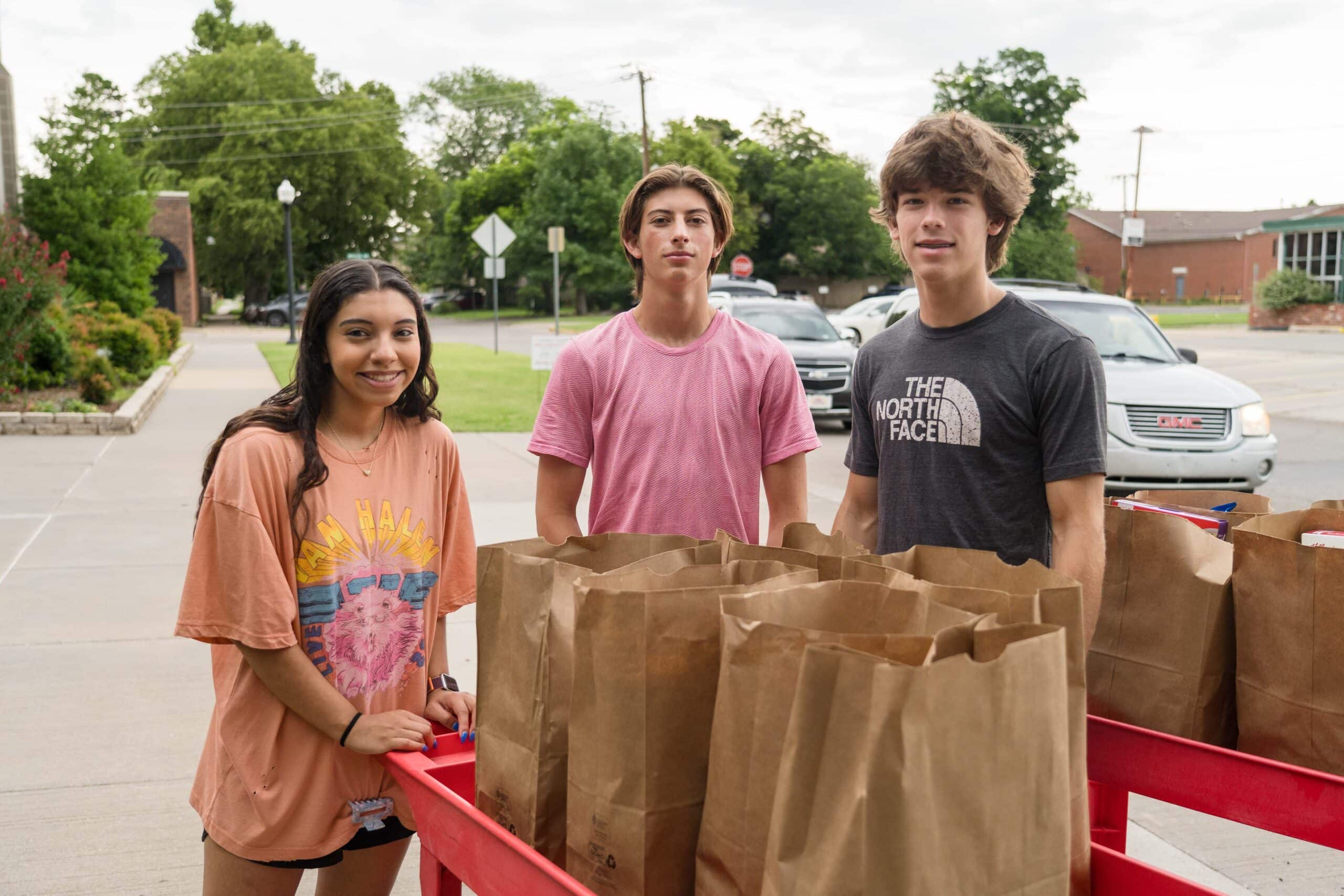
The world continues to make it hard for our neighbors to flourish when they are consistently struggling with food, housing and economic insecurity. Rick Davis and Karen Tobey, both longtime Food Pantry volunteers, see that struggle in the increase in clients over the past four months. Karen looks over a spreadsheet of monthly numbers broken down into average number of families per week. “In March we had 94 families, April we had 104, May, 113 and June, 111. Last year it was in the 80s and the year before it was in the 60s.”
Rick chimes in with details on how the increase is affecting their day-to-day operations. “The stress is up, especially as we get into the hotter days, and we need more intake volunteers who take fewer shifts because of the heat. They are always really busy and really tired by the end of their shift.”
Karen pulls out another spreadsheet with food costs. Generous partnerships with grocery stores help with stocking shelves, but supplemental orders from the Regional Food bank provide staples we don’t get elsewhere, and costs have been on the rise. “Prices have gone up for us just as inflation has made grocery prices higher. Instead of our usual $1-2K a month, we’re spending $3-4K.”
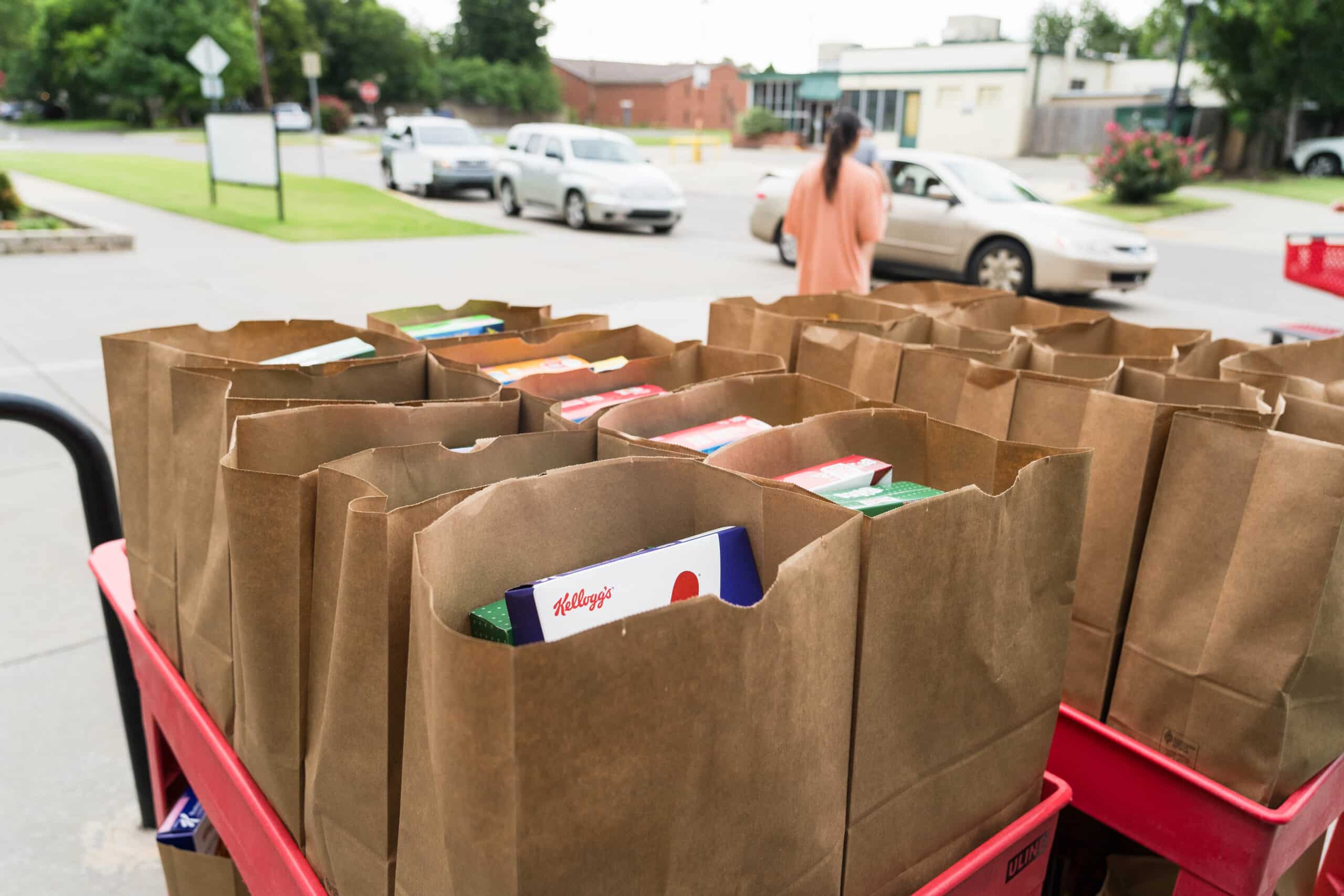
As summer winds down and school routines ramp up in the coming weeks and months, families like yours will find themselves in step with the neighbors that share classrooms and hallways with your children and grandchildren. Reflecting on Jesus’ command to love our neighbor as ourselves, how can we put that into practice with our school neighbors who need extra love and care? One way you can do that is by making McFarlin’s Food Pantry an intentional receiver of your time and financial resources.
Right now, the biggest way you can support the Food Pantry is to give directly to the food pantry budget. These extra funds will help offset the rising cost of food as well as the furniture and shelving that will be needed to furnish the inside of the new space in the Missions Center.
WHEN TO GIVE:
- Anytime, just designate gift for “food pantry”
- For the annual Food Pantry Christmas Offering
HOW TO GIVE
- Give online: under Fund, choose “Food Pantry”
- Check or cash designated “Food Pantry”
Want to learn more?
Reach out to Scott Meier, Director of Missions: smeier@mcfarlinumc.org or 321-3484 ext. 109